Unlocking the Power of Google Maps SEO for Local Business Growth
As the digital landscape evolves rapidly, local businesses face an unprecedented opportunity—and challenge—to dominate their local markets online. Google Maps SEO has emerged as a critical frontier in 2025 for businesses aiming to attract foot traffic, build trust, and convert local searches into loyal customers. But how can savvy business owners and marketers leverage Google Maps SEO beyond the basics to truly accelerate local growth?
In this article, we delve into advanced Google Maps SEO strategies that marry cutting-edge optimization techniques with practical, real-world application. From Google’s evolving algorithm nuances to hyperlocal targeting, these insights reflect deep expertise and offer actionable wisdom for businesses ready to elevate their local presence.
Geo-Targeted Keyword Mastery: Speak Your Customers’ Language Where It Matters Most
One of the most potent yet underutilized strategies is the intelligent integration of geo-targeted keywords within your Google Business Profile and associated content. Instead of generic terms, use hyperlocal phrases that reflect neighborhoods, landmarks, or colloquial place names your customers actually search for. This precision enhances relevancy signals to Google’s local search algorithm, boosting your business’s visibility in the coveted local 3-pack.
For example, a coffee shop in Brooklyn might optimize for “best artisanal coffee near Williamsburg” rather than just “coffee shop Brooklyn.” This subtle but strategic shift aligns with search intent and leverages Google’s increasing emphasis on contextual relevance.
Harnessing User-Generated Content: The Authenticity Algorithm Booster
Google increasingly rewards genuine user engagement and fresh content. Encouraging customers to leave detailed reviews, upload photos, and engage with Q&A on your Google Business Profile not only enriches your listing but also signals active, trustworthy business operations to Google’s crawlers.
Implementing a review generation strategy grounded in authenticity—such as personalized follow-ups and incentives—can dramatically improve rankings. According to Moz’s Local Search Ranking Factors, review signals account for nearly 15% of local pack ranking criteria, underscoring their critical role in 2025’s competitive landscape.
How Can Businesses Ensure Their Google Maps SEO Stays Ahead Amid Algorithm Changes?
Google’s local search algorithm continuously evolves, integrating AI and machine learning to better interpret user intent and context. Businesses must adopt a dynamic SEO approach that includes frequent profile updates, leveraging Google’s new features such as Posts and product catalogs, and monitoring analytics to identify emerging local search trends.
Regularly auditing your Google Business Profile with expert tools and adjusting strategies accordingly ensures resilience against algorithm shifts. For those seeking a structured approach, resources like GMB SEO 2025 Ultimate Guide offer comprehensive roadmaps to maintain and enhance local search performance.
The Synergy of Citation Consistency and Local Backlinks
Citation management remains a foundational pillar for Google Maps SEO success. Precise, consistent Name, Address, and Phone Number (NAP) citations across authoritative directories and local platforms amplify your credibility signals. Coupled with strategic local backlink acquisition—such as partnerships with community organizations, local news outlets, or chamber of commerce websites—your business’s domain authority and trustworthiness skyrocket in Google’s eyes.
This synergy not only improves rankings but also drives direct referral traffic, creating a virtuous cycle of local engagement and online prominence.
Immersive Visual Optimization: Beyond Photos to Local Storytelling
Optimizing your Google Business Profile photos is no longer limited to high-resolution images. Incorporating 360-degree virtual tours, short videos showcasing your premises or products, and regularly updated photo content tells a compelling local story that engages users and keeps your listing fresh.
Google favors active profiles with rich media, which enhances click-through rates and conversion potential. For actionable tips on this front, see How to Optimize GMB Listing Photos for Higher Local Rankings.
Engage With Your Community: Local SEO is a Relationship Game
Finally, Google Maps SEO in 2025 thrives on authentic community engagement. Hosting local events, sponsoring neighborhood initiatives, and actively participating in local forums or social media groups creates offline signals that translate into stronger online presence. Google increasingly values businesses demonstrating real-world local involvement, which can differentiate you in saturated markets.
Ready to elevate your local business through expert Google Maps SEO strategies? Connect with seasoned professionals who specialize in maximizing your Google Business Profile’s impact and visibility today.
Leveraging Behavioral Signals: The Next Frontier in Google Maps SEO
Google increasingly incorporates user behavioral data—such as click-through rates, direction requests, and mobile engagement—into its local ranking algorithms. Businesses that optimize for these metrics can gain a competitive edge. For instance, encouraging customers to use Google Maps for navigation not only improves foot traffic but also sends positive engagement signals to Google, reinforcing your listing’s relevance.
Implementing call-to-action prompts on your website and Google Business Profile that nudge visitors to “Get Directions” or “Visit Us Today” can escalate these behavioral metrics. Monitoring these interactions through Google Analytics and GMB Insights helps refine your local SEO tactics and identify high-impact opportunities.
How Can Data-Driven Insights Transform Your Local SEO Strategy?
By harnessing data analytics, businesses can move beyond guesswork and tailor their Google Maps SEO efforts with precision. Data-driven insights reveal which keywords, content types, and engagement methods resonate best with your target audience. For example, analyzing search queries that lead to your profile can uncover untapped local keywords or service niches.
Moreover, tracking competitor performance through tools like SEMrush or BrightLocal allows benchmarking and strategic adjustments. According to Search Engine Land, local SEO strategies grounded in analytics outperform generic approaches by up to 30% in conversion rates, emphasizing the value of informed decision-making.
Optimizing Google Business Posts for Seasonal and Event-Based Relevance
Google Business Posts offer a dynamic channel to communicate time-sensitive promotions, events, or updates directly within your listing. Crafting posts aligned with local holidays, community events, or seasonal trends not only attracts immediate attention but also signals activity and relevance to Google’s algorithm.
Integrate geo-targeted keywords and compelling visuals in your posts to maximize impact. Regularly updating posts ensures your profile remains fresh and engaging, which can improve local rankings and customer interaction rates. For detailed tactics, explore How to Optimize GMB Posts for Better Local Search Rankings.
Strategic Use of Google Q&A: Managing Reputation and Enhancing SEO Value
The Google Q&A feature is often overlooked yet holds substantial SEO and reputation management potential. Proactively asking and answering frequently posed questions on your profile shapes customer perceptions and preempts concerns, improving user experience.
Ensure that responses are detailed, keyword-optimized, and updated to reflect changes in products, services, or policies. Prompt customers to contribute questions and answer them promptly to foster engagement. This activity enriches your profile content and signals to Google that your business is active and responsive.
Integrating Q&A management into your local SEO strategy can differentiate your business in competitive markets and support higher Google Maps rankings.
For more comprehensive strategies to optimize your Google Business Profile effectively, consider visiting How to Optimize Your Google Business Listing Effectively.
Embracing Hyperlocal Content Marketing to Complement Your Google Maps SEO
Developing hyperlocal content—such as blog posts, guides, or videos focused on your immediate community—enhances your business’s topical authority and relevance. This content can be integrated into your website and shared via your Google Business Profile through posts and updates.
For example, a landscaping company might publish seasonal gardening tips specific to their city or neighborhood. This approach not only attracts local traffic but also generates backlinks and social shares, amplifying your local SEO efforts.
By aligning hyperlocal content with your Google Maps SEO, you build a multi-channel local presence that reinforces your brand as the community’s trusted expert.
Explore additional local SEO growth strategies at Local Business Growth Strategies with GMB SEO Techniques.
Advanced Behavioral Metrics: Decoding User Interactions to Elevate Google Maps Rankings
While traditional SEO tactics focus heavily on keywords and citations, the nuanced world of behavioral metrics unlocks a new echelon in Google Maps SEO. Google’s algorithm increasingly prioritizes how users interact with your listing — not just if, but how often and in what ways. Key metrics include click-through rates (CTR) from search results, requests for directions, call clicks, and even the time spent engaging with your profile.
To harness these signals effectively, businesses must design their Google Business Profiles with action-oriented elements that encourage user engagement. For example, embedding clear “Call Now” and “Get Directions” buttons, optimizing post content to drive clicks, and timely responding to queries can significantly boost these engagement indicators. By analyzing these behavioral data points using Google My Business Insights, marketers can identify which interactions lead to conversions and tailor their strategies accordingly.
What role does AI and machine learning play in interpreting behavioral signals for local SEO?
Google’s use of AI and machine learning has transformed local search by enabling real-time interpretation of complex behavioral patterns. Rather than relying solely on static factors, AI algorithms dynamically assess user intent and contextual relevance based on interactions such as repeat visits, engagement frequency, and even voice search queries.
This means your Google Maps SEO strategy must evolve from a static checklist to a fluid, data-responsive model. Leveraging AI-powered tools that monitor engagement trends can provide predictive insights, helping businesses anticipate shifts in user behavior and adjust their local SEO tactics proactively.
Hyperlocal Content Marketing: Crafting Community-Centric Narratives that Resonate
Hyperlocal content marketing is not merely about inserting neighborhood keywords — it’s about weaving authentic stories that resonate deeply with your immediate community. This strategy elevates your business’s topical authority and strengthens trust with local audiences, which Google rewards with higher rankings.
Consider developing comprehensive guides, neighborhood event calendars, or spotlight series on local collaborations. For instance, a fitness studio might publish a blog on “Top Running Trails in [Neighborhood]” or create video testimonials featuring local members’ success stories. This approach generates diverse content formats that appeal both to search engines and human readers, enriching your Google Business Profile through organic backlinks, social shares, and enhanced user engagement.
To maximize impact, integrate your hyperlocal content directly into your Google Business Posts and Q&A sections, ensuring a seamless user journey from discovery to conversion.
Advanced Citation Strategies: Beyond Consistency to Authority Building
While consistent Name, Address, Phone Number (NAP) citations remain foundational, advanced citation strategies focus on building authoritative local link profiles that signal trust and relevance. This involves securing citations from high-authority local websites such as municipal portals, industry-specific directories, and recognized local news outlets.
Moreover, adopting schema markup on your website that aligns with your Google Business Profile enhances semantic understanding by search engines, creating a robust interconnected data ecosystem. Tools like Google’s Structured Data Markup Helper assist in implementing this advanced SEO layer.
Integrating AI-Driven Tools for Continuous Optimization and Competitive Edge
In the rapidly evolving landscape of Google Maps SEO, leveraging AI-driven platforms for continuous audit and optimization is indispensable. These tools analyze multifaceted data—from ranking fluctuations to competitor activity—and recommend precise tactical adjustments.
For example, AI-powered sentiment analysis of customer reviews can uncover nuanced feedback trends, enabling tailored service improvements and targeted reputation management. Coupled with automated monitoring of Q&A responsiveness and citation health, this approach ensures your local SEO remains agile and resilient.
Embracing such technology-driven methodologies not only future-proofs your strategy but also uncovers hidden opportunities for market dominance.
Curious to explore how these advanced Google Maps SEO strategies can transform your local business growth? Connect with our expert consultants today for a personalized audit and actionable insights tailored to your market.
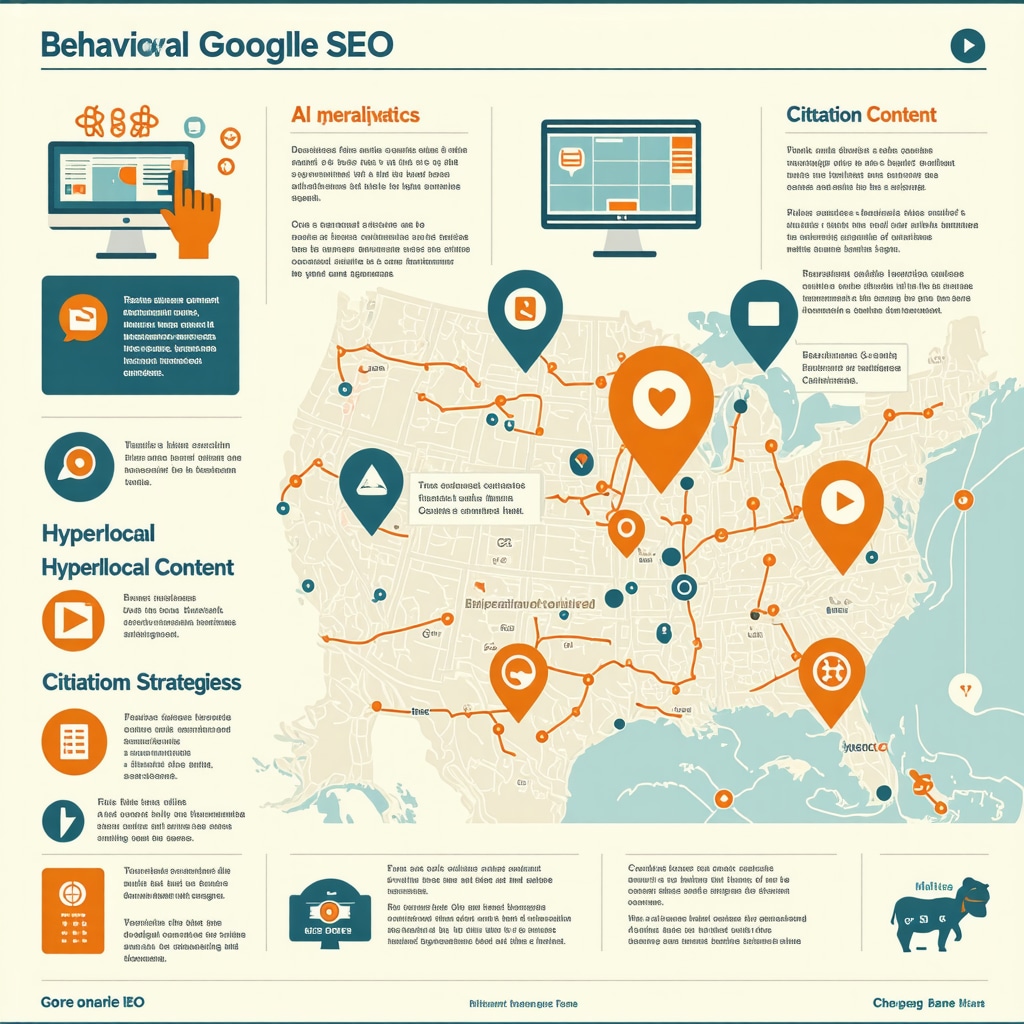
Decoding the AI Revolution in Local Search Rankings
Artificial intelligence and machine learning have fundamentally transformed the landscape of Google Maps SEO, enabling more nuanced interpretation of behavioral signals than ever before. Google’s algorithms no longer rely solely on static factors like citations or keywords; instead, they dynamically analyze complex user interactions such as repeat profile visits, engagement frequency, and even voice search patterns. This evolution demands that SEO strategies evolve beyond basic optimizations toward adaptive, data-responsive frameworks that anticipate and respond to emerging behaviors in real time.
Integrating Predictive Analytics to Anticipate Local Market Shifts
Predictive analytics powered by AI tools offers marketers the capability to forecast local search trends and consumer behavior shifts with remarkable precision. By analyzing historical engagement data alongside external variables—like seasonal demand fluctuations or community events—businesses can proactively tailor their Google Business Profile content, posts, and offers to capture peak interest windows and outperform competitors.
This forward-thinking approach not only enhances listing relevance but also maximizes conversion potential by aligning with user intent before it fully materializes.
How Can Businesses Leverage AI-Driven Behavioral Data to Optimize Google Maps Listings Continuously?
To harness AI-driven behavioral insights effectively, businesses should adopt specialized tools that aggregate and analyze Google My Business interactions—such as clicks, direction requests, and calls—in near real-time. Platforms incorporating machine learning algorithms can identify patterns and anomalies, recommending targeted adjustments to profile elements, post timing, and engagement tactics.
Additionally, integrating voice search optimization and natural language processing (NLP) techniques ensures compatibility with emerging search modalities. Proactively responding to these insights with agile content updates and enhanced user experience features drives sustained local search prominence.
For a comprehensive understanding of leveraging AI in local SEO, consult authoritative resources like Google Search Central’s AI & Local Search Evolution.
Strategic Fusion of Hyperlocal Storytelling and AI Analytics
Marrying hyperlocal content marketing with AI analytics empowers businesses to craft deeply resonant narratives that reflect authentic community values while optimizing discoverability. By analyzing engagement metrics on various content formats—blogs, videos, Google Posts—marketers can pinpoint which storytelling elements drive the strongest local affinity and search visibility.
This iterative, data-informed content strategy fosters stronger brand loyalty and amplifies organic reach within neighborhood ecosystems.
Elevating Citation Authority Through AI-Powered Audits and Semantic SEO
Advanced citation strategies now incorporate AI-enabled tools to continuously audit and enhance citation accuracy and authority across multiple platforms. These tools facilitate identification of inconsistent NAP data and uncover opportunities for authoritative backlinks from high-impact local domains.
Complementing this with semantic SEO practices—such as implementing structured data markup and entity-based optimization—creates a cohesive ecosystem that signals unparalleled relevance and trustworthiness to search engines.
Call to Action: Propel Your Local Business into the AI-Driven Era of Google Maps SEO
Embracing the integration of AI, behavioral analytics, and hyperlocal storytelling represents the vanguard of Google Maps SEO excellence in 2025. Businesses ready to transcend traditional tactics and embed data-driven agility into their local marketing can unlock unprecedented growth and competitive advantage.
Connect with our expert consultants today to receive a personalized audit and strategic roadmap that harnesses cutting-edge AI insights to elevate your Google Business Profile’s visibility and impact.
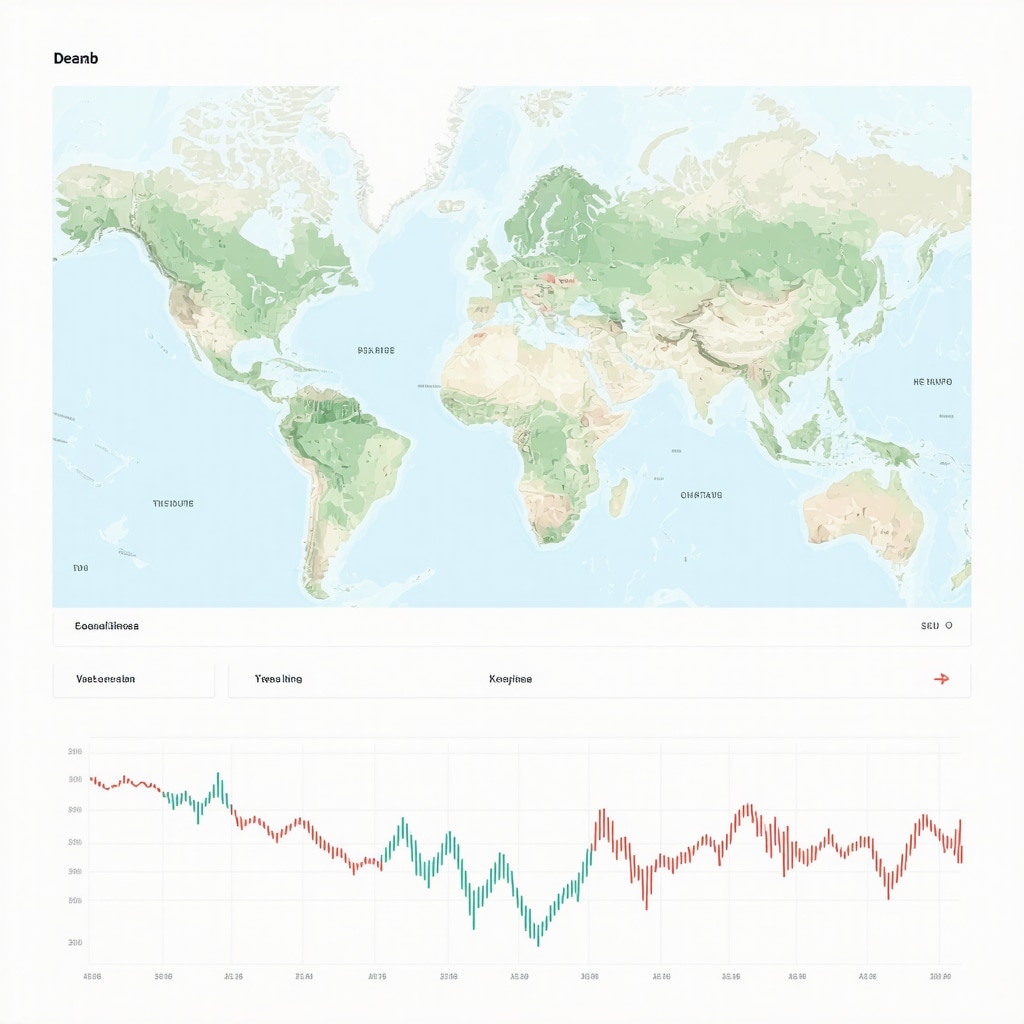
Frequently Asked Questions (FAQ)
What is Google Maps SEO and why is it crucial for local businesses?
Google Maps SEO involves optimizing your Google Business Profile and related local online presence to improve your visibility in Google Maps and local search results. It is crucial because it directly influences how easily local customers can discover your business, thereby driving foot traffic, calls, and conversions.
How do geo-targeted keywords improve my Google Maps rankings?
Geo-targeted keywords refine your SEO by incorporating specific neighborhood names, landmarks, or colloquial terms that your target audience uses. This increases relevancy signals to Google’s local search algorithm, enhancing your chances of appearing in the local 3-pack for highly contextualized searches.
Why are user-generated reviews and photos important for Google Maps SEO?
User-generated content such as reviews and photos boosts authenticity and signals active engagement to Google. Google’s algorithm values fresh, genuine content, which significantly impacts local ranking factors and builds trust with potential customers.
How can businesses stay resilient against frequent Google algorithm updates?
Maintaining resilience requires a dynamic SEO strategy including frequent updates to your Google Business Profile, leveraging new Google features, monitoring analytics for trends, and continuous auditing with expert tools. Staying informed and agile allows you to adapt quickly to algorithm changes.
What role do behavioral signals play in Google Maps SEO?
Behavioral signals like click-through rates, direction requests, and call clicks inform Google about user engagement and relevance of your listing. Optimizing for these actions by encouraging interactions and analyzing behavioral data can significantly elevate your local search rankings.
How can AI and machine learning enhance local SEO strategies?
AI and machine learning enable real-time analysis of complex user behaviors and search patterns, allowing businesses to adopt data-responsive SEO strategies. They provide predictive insights, optimize content timing, and help tailor user experiences to maintain competitive local search presence.
What are advanced citation strategies beyond basic NAP consistency?
Advanced citation strategies focus on building authoritative backlinks from high-impact local domains, using semantic SEO with structured data markup, and continuously auditing citation accuracy with AI-powered tools. This holistic approach strengthens trust and relevance signals to search engines.
How can hyperlocal content marketing complement Google Maps SEO?
Hyperlocal content marketing involves creating authentic, community-focused narratives that resonate with local audiences. It enhances topical authority, generates backlinks, and enriches user engagement, all of which synergize with your Google Business Profile to boost local rankings.
What is the best way to use Google Business Posts and Q&A for SEO?
Use Google Business Posts to highlight timely promotions, events, and updates with geo-targeted keywords and compelling visuals. Manage Q&A by proactively answering common questions with detailed, keyword-optimized responses to improve user experience and signal active engagement to Google.
How can predictive analytics help anticipate local market changes?
Predictive analytics leverages historical data and external variables to forecast local search trends and consumer behavior shifts. This allows businesses to proactively adjust content, offers, and SEO tactics to capitalize on emerging opportunities ahead of competitors.
Trusted External Sources
- Moz Local Search Ranking Factors Report: Provides detailed analysis of key ranking elements impacting local SEO, including review signals and citation importance.
- Google Search Central Blog: Offers authoritative updates and best practices on the integration of AI, structured data, and evolving local search algorithms.
- Search Engine Land: Delivers in-depth articles on local SEO trends, behavioral signal impacts, and data-driven marketing strategies.
- BrightLocal Local SEO Tools and Reports: Specializes in local SEO performance tracking, competitor benchmarking, and citation audits with AI-enhanced insights.
- Google Developers Structured Data Markup Helper: Facilitates the implementation of semantic SEO through structured data to improve search engine understanding of local business information.
Conclusion
Google Maps SEO in 2025 demands a sophisticated blend of hyperlocal keyword mastery, authentic user engagement, advanced citation strategies, and the intelligent use of behavioral signals powered by AI and machine learning. By embracing dynamic, data-driven optimization and weaving compelling, community-centric narratives, businesses can secure prominent local visibility and sustainable growth. The synergy between technology and genuine local involvement sets apart market leaders in this new era.
To harness these expert strategies and propel your local business forward, consider engaging with specialized consultants or leveraging AI-driven SEO tools that provide continuous insights and optimization. Share your experiences, ask questions, and explore related expert content to deepen your mastery of Google Maps SEO and unlock its full potential for your business.
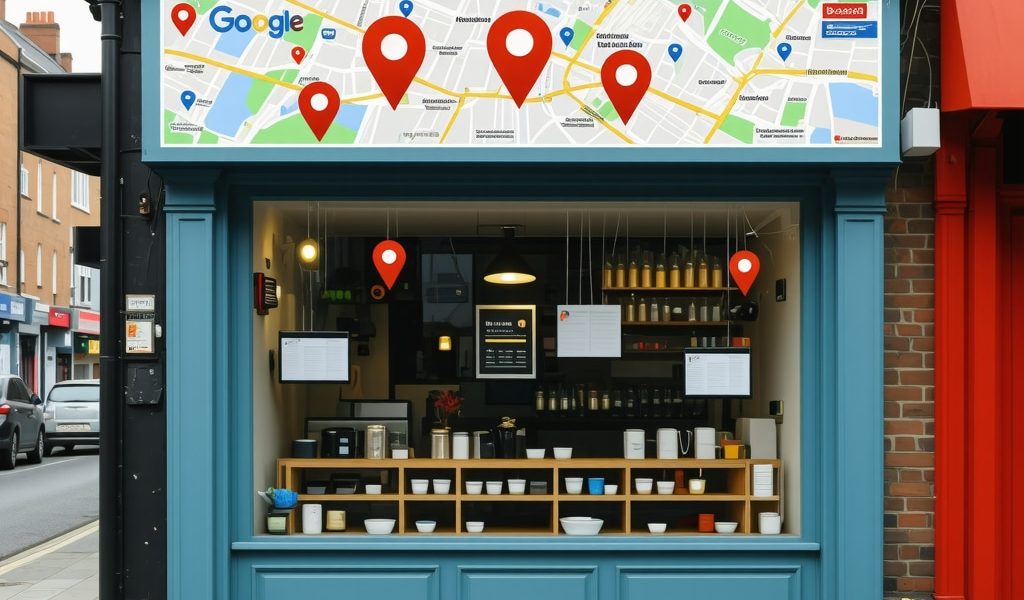
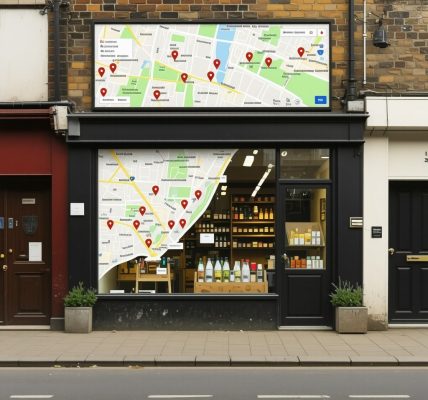
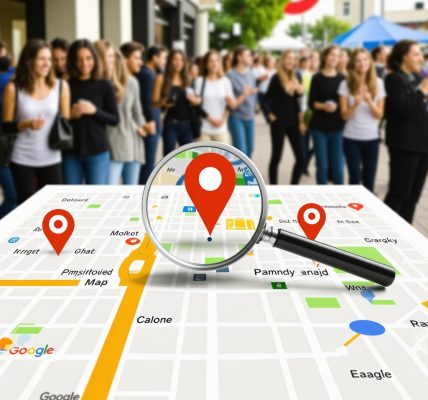

Reading through this comprehensive guide really highlights how advanced Google Maps SEO has become. I especially appreciate the emphasis on behavioral signals and AI analytics, which are often overlooked even by experienced marketers. When I first started optimizing locally, I underestimated the power of user engagement metrics like click-through and direction requests, but seeing their impact now makes it clear that these are crucial for sustaining visibility. I’ve been experimenting with incorporating more user-generated videos and encouraging local reviews, and I’ve already seen a boost in engagement and local rankings. The challenge I still face is creating hyperlocal content that really resonates with the community while maintaining consistency and authenticity. Have others found effective ways to balance quality content creation with daily operations? Also, which AI tools have proven most reliable for ongoing profile audits and behavioral data analysis? Would love to hear tips from those who’ve successfully integrated these advanced strategies into their routine.
This article really hits the nail on the head about leveraging behavioral signals and hyperlocal content in 2025’s Google Maps SEO landscape. I’ve seen firsthand how encouraging customers to use the ‘Get Directions’ button or leave detailed reviews can tangibly boost ranking positions, especially when combined with innovative content like virtual tours and community stories. What I find particularly intriguing is the emphasis on AI and machine learning to continually adapt strategies in real time. Since adopting some AI tools for review analysis and profile monitoring, I’ve noticed insights that helped me proactively optimize my profile ahead of algorithm updates. That said, balancing automation with authentic community engagement remains a challenge. Have others experimented with AI-driven personal outreach strategies that don’t feel overly robotic? Also, with the increasing importance of local backlinks, what are some effective ways to establish these partnerships without seeming overly transactional? Would love to hear experiences from others who’ve navigated these complex but rewarding strategies.